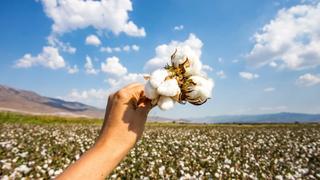Just as they made India self-sufficient in sugar, Indian sugar mills can play a major role in making the country self-reliant in meeting its energy requirement, said the Minister of Petroleum and Natural gas Dharmendra Pradhan on Friday.
Apart from producing bio-ethanol, the mills should also explore the possibility of getting into to making fuel from the abundantly available agricultural waste, he said while inaugurating the 84th annual general meeting of the Indian Sugar Mills Association (ISMA) here.
Such diversification will be good for sugar mills also, he said.
According to him, estimates show 600 million tonnes of agricultural waste is generated, which can easily be converted into fuel as technologies already exist, he said. This will stand the country in good stead as energy requirement is expected to go up significantly over the years at the current rate of growth. India, which is one of the largest consumers of energy would climb to first or second position in the next 25 years, as per the projections made by the International Energy Agency, the Minister said.
In his presidential address, outgoing ISMA president Gaurav Goel requested Pradhan’s help in reforming sugarcane pricing policy.
India must be the only country amongst the large sugar producing nations which does not have a rationalised sugarcane pricing policy linked to revenue realisation or sugar price, said Goel, who is also the managing director of Dhampur Sugar Mills.
“We continue to have a system where the Government fixes a price of sugarcane, which has continuously increased even when the sugar prices have fallen,” he said adding that such a policy was making Indian sugar uncompetitive in the global market.
According to Goel, this year sugar mills in the country have contracted to supply 260 crore litres of ethanol, which is enough for eight per cent blending, in the current season.
The outgoing ISMA president also used this occasion to air an industry grievance about a couple of States taxing rectified spirit (RS) and extra neutral alcohol (ENA), the intermediate products of sugar production. Prior to the introduction of the Goods and Services Tax, RS and ENA were not taxed as they are intermediate products and not fit for human consumption. But following the introduction of GST, States like Andhra Pradesh have started taxing RS and ENA.
Rohit Pawar, CEO of Baramati Agro Limited, takes over as president of ISMA.







Comments
Comments have to be in English, and in full sentences. They cannot be abusive or personal. Please abide by our community guidelines for posting your comments.
We have migrated to a new commenting platform. If you are already a registered user of TheHindu Businessline and logged in, you may continue to engage with our articles. If you do not have an account please register and login to post comments. Users can access their older comments by logging into their accounts on Vuukle.